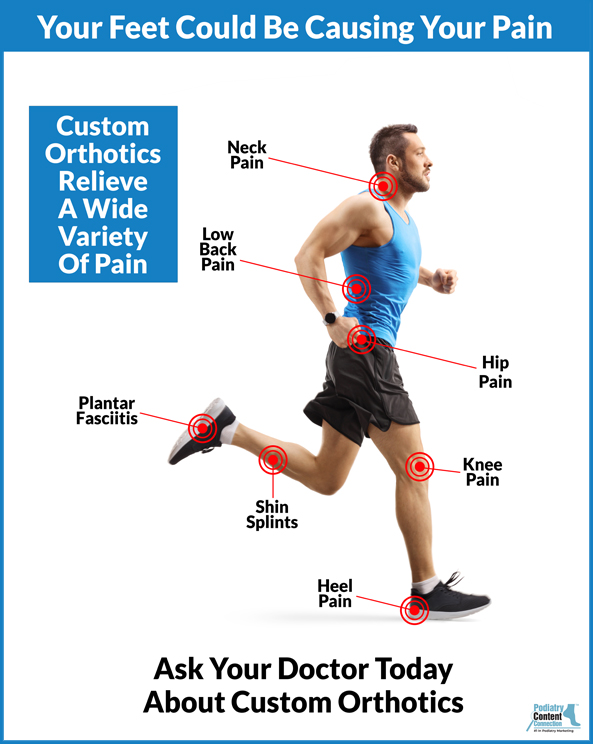Custom Orthotics
Reduce Foot Pain With Custom Orthotics
When you experience foot pain, specifically in the arch of the foot, you likely thought you needed more cushion. A softer sole or more cushion feels great, but it doesn’t address the underlying issue causing the foot pain. Our 15-minute orthotics assessment will help us identify which orthotic you need and get you on the road to relief with a new custom orthotic. Call our office today to request an appointment.
Schedule Your Orthotics AssessmentManhattan Office(212) 629-5090 or Brooklyn Office(718) 330-1117
 Top 10 Benefits of Orthotics
Top 10 Benefits of Orthotics
- Customized Comfort: Tailored to the exact shape of your foot, ensuring maximum comfort with every step.
- Pain Relief: Alleviates foot, ankle, and even back pain caused by misalignment or foot conditions.
- Enhanced Foot Support: Provides optimum arch and heel support, reducing foot fatigue.
- Improved Posture: Aligns the foot and ankle joints, promoting better posture and balance.
- Protection & Cushioning: Protects the feet from undue pressure, minimizing the risk of ulcers, especially in diabetic patients.
- Extended Shoe Lifespan: Reduces the wear and tear on your shoes, allowing them to last longer.
- Optimized Athletic Performance: Enhances stability and performance for athletes, reducing the risk of injury.
- Correction of Foot Abnormalities: Helps in managing conditions like flat feet, bunions, and plantar fasciitis.
- Reduction in Joint Strain: Lessens the strain on the knees, hips, and lower back.
- Boosted Mobility: Experience greater ease and freedom in daily activities and exercises.


